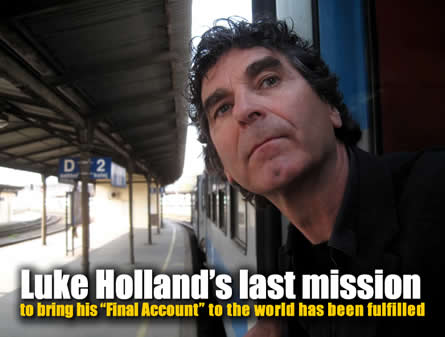
Luke Holland’s last mission to bring his “Final Account” to the world has been fulfilled with the Friday release of the late director’s searing Holocaust documentary.
Spurred to urgent action in 2008, the documentary filmmaker, whose grandparents were murdered in the Holocaust, sought to interview the last living architects of Adolf Hitler’s Third Reich.
Not the monsters from the history books, but ordinary German men and women who participated or were silent through the monstrous atrocities of the Holocaust – from former SS members and concentration camp guards to farmers and housewives. After completing 300 interviews and editing the completed work, Holland, 71, died in July after a prolonged battle with cancer.
“The film itself is the culmination of a lifetime’s work and mission,” says his longtime friend and film associate producer Sam Pope. “Luke was supremely happy to have finished it, to make it over the final line. He completed his mission.”
Pope, who met the filmmaker at age 6 when his family moved to his small village in East Sussex, England, believes his filmmaking mentor was building towards making the “Final Account” his entire life.
The U.K-born Holland found out when he was 14 that his mother was a Jewish refugee who had fled Vienna, Austria just before the Germans marched in. Jews were rounded and sent off to to concentration camps, including Holland’s grandparents, who died.
“Learning of his family’s murder set off a spark, and informed his life and work,” says Pope.
Holland became a documentary filmmaker, making films such as “Good Morning Mr. Hitler!” (1993) which showed Hitler and high-ranking Nazis up-close through discovered home movies, and “I Was a Slave Labourer” (2000), focusing on a former Nazi slave laborer’s campaign for compensation.
But in 2008, Holland realized he faced a closing window to get the last word from a passing generation on the horrors that took place.
“He was spurred on knowing this was the final moment he’d ever have to capture these interviews. Time was always up against him, this generation was dying,” says Pope. “He initially set out to meet the people who had murdered his grandparents and ask them ‘Why?’ But if he couldn’t meet them, then he could meet people like them.”
[siblings}



